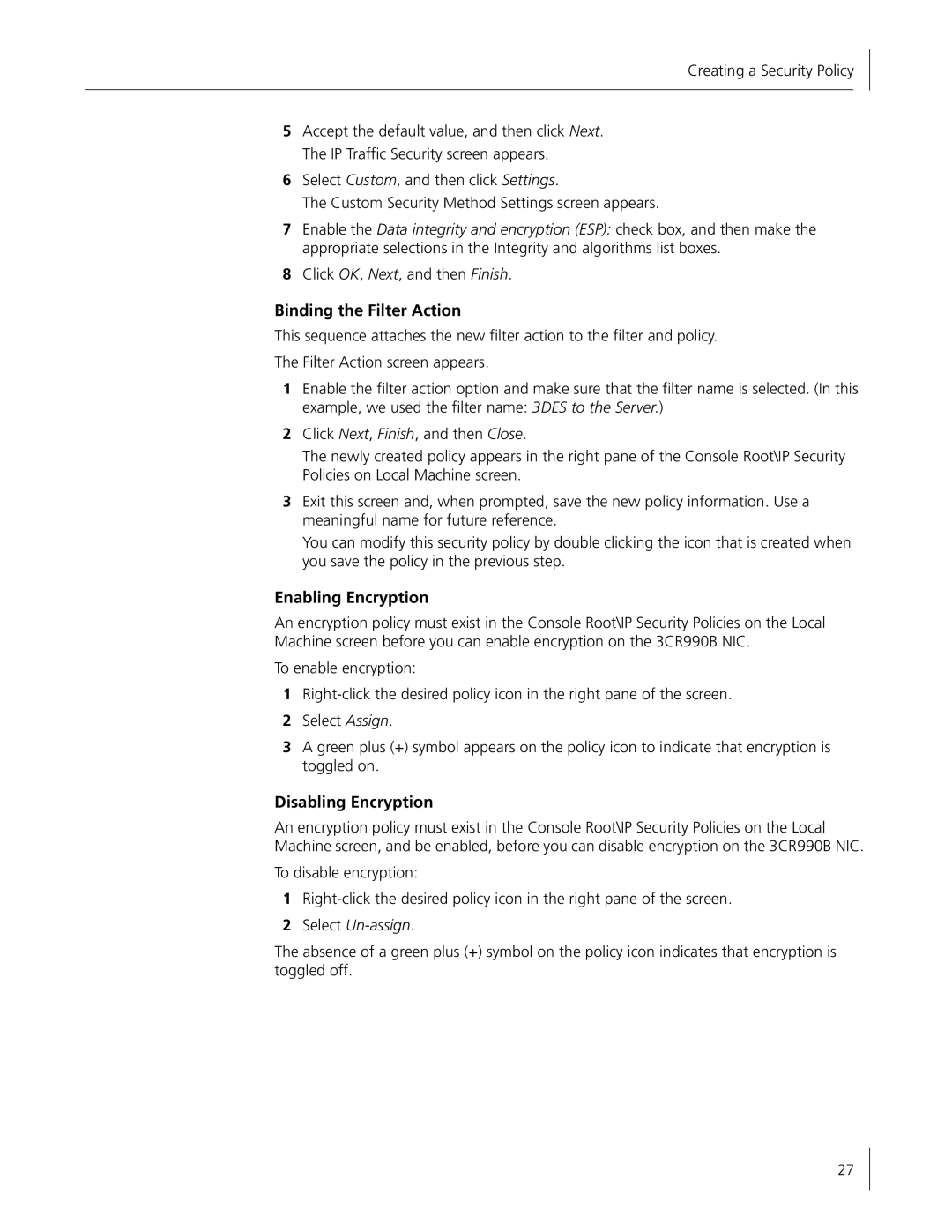
Creating a Security Policy
5Accept the default value, and then click Next. The IP Traffic Security screen appears.
6Select Custom, and then click Settings.
The Custom Security Method Settings screen appears.
7Enable the Data integrity and encryption (ESP): check box, and then make the appropriate selections in the Integrity and algorithms list boxes.
8Click OK, Next, and then Finish.
Binding the Filter Action
This sequence attaches the new filter action to the filter and policy.
The Filter Action screen appears.
1Enable the filter action option and make sure that the filter name is selected. (In this example, we used the filter name: 3DES to the Server.)
2Click Next, Finish, and then Close.
The newly created policy appears in the right pane of the Console Root\IP Security Policies on Local Machine screen.
3Exit this screen and, when prompted, save the new policy information. Use a meaningful name for future reference.
You can modify this security policy by double clicking the icon that is created when you save the policy in the previous step.
Enabling Encryption
An encryption policy must exist in the Console Root\IP Security Policies on the Local Machine screen before you can enable encryption on the 3CR990B NIC.
To enable encryption:
1
2Select Assign.
3A green plus (+) symbol appears on the policy icon to indicate that encryption is toggled on.
Disabling Encryption
An encryption policy must exist in the Console Root\IP Security Policies on the Local Machine screen, and be enabled, before you can disable encryption on the 3CR990B NIC.
To disable encryption:
1
2Select Un-assign.
The absence of a green plus (+) symbol on the policy icon indicates that encryption is toggled off.
27
